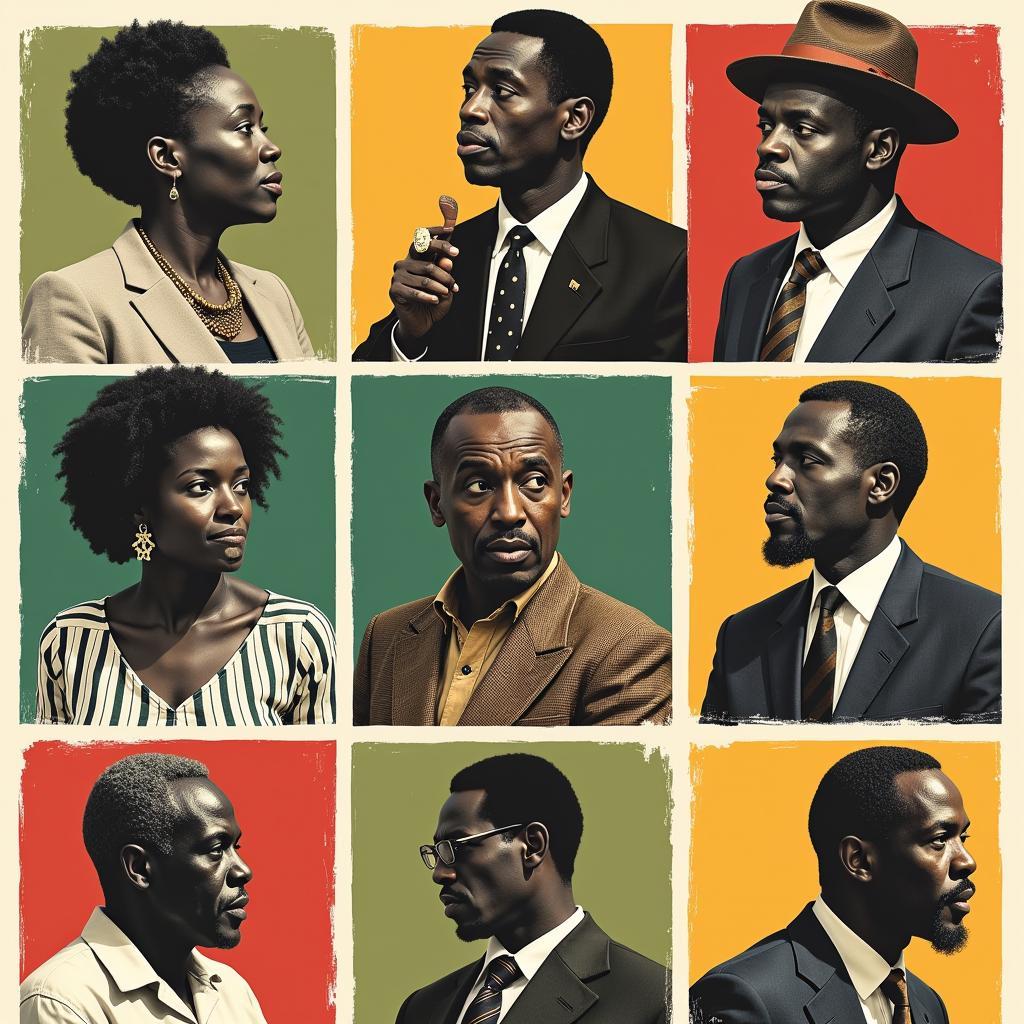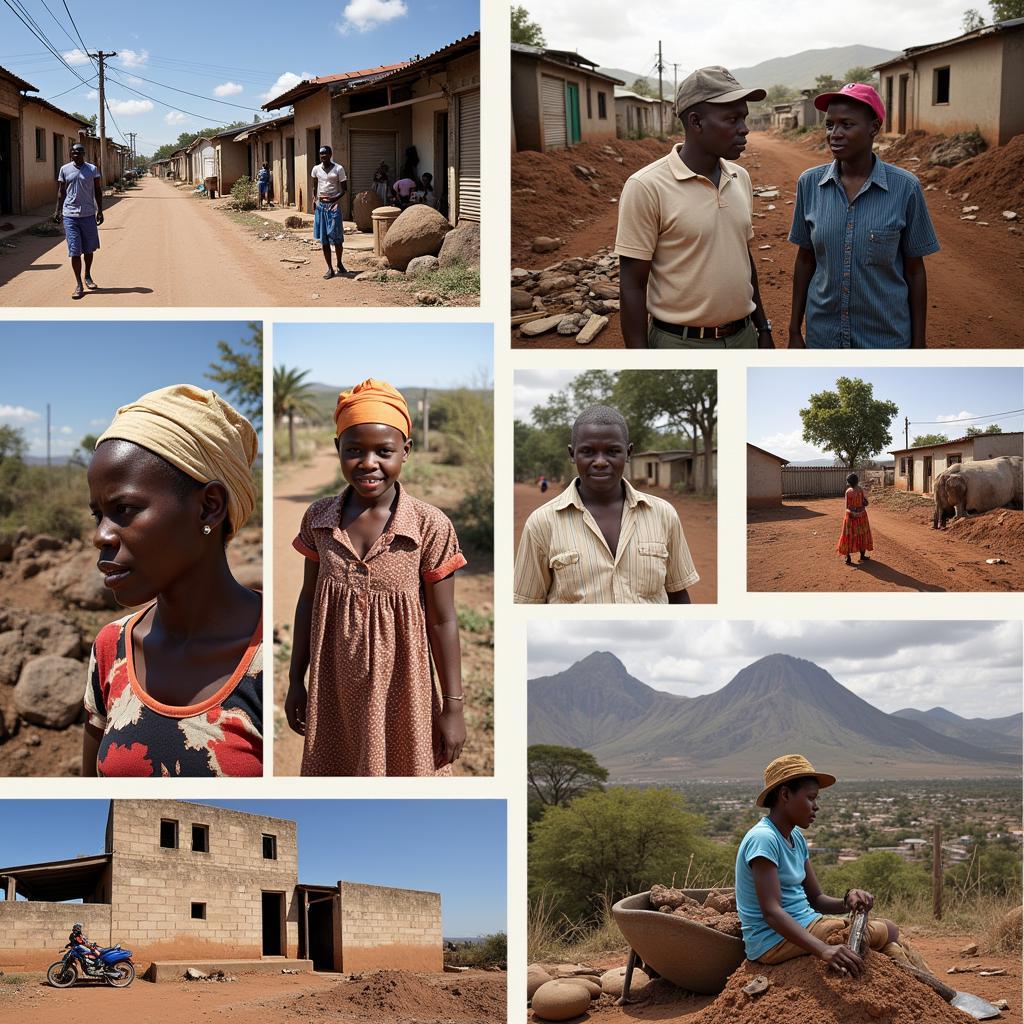African Countries Capitals and Independence Dates
African countries, their capitals, and independence dates are essential knowledge for anyone interested in the continent’s rich history and diverse cultures. Understanding these fundamental facts provides a valuable framework for exploring the individual journeys of each nation, from colonial rule to self-determination. This article delves into this crucial information, providing a comprehensive overview of African nations, their capital cities, and the dates they achieved independence.
A Journey Through African Independence: Capitals and Key Dates
Africa’s path to independence is a tapestry woven with threads of resilience, struggle, and ultimately, triumph. Each nation’s story is unique, marked by specific challenges and victories. Knowing the capitals and independence dates allows us to appreciate the distinct identities of these countries and the historical context that shaped them. Let’s embark on this journey, exploring the diverse landscape of African independence.
North Africa: From Ancient Empires to Modern Nations
North Africa, a region steeped in ancient history, witnessed the rise and fall of empires long before the era of colonization. The independence movements in this region were often intertwined with the struggle against European powers. For example, Egypt, with its capital Cairo, gained independence from Britain in 1922, while Algeria, with its capital Algiers, fought a protracted war for independence from France, finally achieving it in 1962. Morocco, with Rabat as its capital, gained independence from France and Spain in 1956.
 North African Independence Celebrations
North African Independence Celebrations
West Africa: A Cradle of Culture and Resistance
West Africa, known for its rich cultural heritage, saw a wave of independence movements in the mid-20th century. Ghana, with Accra as its capital, led the way, becoming the first sub-Saharan African nation to gain independence from British rule in 1957. Nigeria, with its capital Abuja, followed suit in 1960, while Senegal, with Dakar as its capital, gained independence from France in the same year.
 West African Independence Leaders
West African Independence Leaders
East Africa: A Tapestry of Nations and Independence Struggles
East Africa’s journey to independence was marked by diverse experiences, with some nations achieving peaceful transitions while others endured armed struggles. Kenya, with Nairobi as its capital, gained independence from British rule in 1963. Tanzania, formed by the union of Tanganyika and Zanzibar, has Dodoma as its capital and achieved independence in 1961 (Tanganyika) and 1963 (Zanzibar). Uganda, with Kampala as its capital, also gained independence from Britain in 1962. See the African Union map to visualize the geographical distribution of these nations.
Southern Africa: Overcoming Apartheid and Colonial Rule
Southern Africa’s struggle for independence was deeply marked by the fight against apartheid in South Africa. South Africa, with its capitals Pretoria (administrative), Bloemfontein (judicial), and Cape Town (legislative), finally dismantled apartheid and achieved full democratic independence in 1994. Other nations in the region, such as Angola (Luanda) and Mozambique (Maputo), gained independence from Portugal in 1975. You can find a helpful list of African capitals in alphabetical order.
 Southern Africa Post-Independence
Southern Africa Post-Independence
Central Africa: Navigating the Path to Self-Determination
Central Africa faced unique challenges in its journey to independence, often grappling with political instability and internal conflicts. The Democratic Republic of Congo, with Kinshasa as its capital, gained independence from Belgium in 1960. Countries like Cameroon (Yaoundé) and Gabon (Libreville) also achieved independence in the early 1960s.
A Continent Transformed: Reflecting on African Independence
Understanding the capitals and independence dates of African countries is crucial for comprehending the continent’s complex history and the ongoing journey of its nations. From North Africa to Southern Africa, each region’s path to independence has been shaped by unique circumstances and challenges. Knowing these key facts allows us to appreciate the resilience, determination, and triumphs of the African people in their pursuit of self-determination.
FAQ
- What was the first sub-Saharan African country to gain independence? Ghana.
- When did South Africa achieve full democratic independence? 1994.
- What is the capital of Nigeria? Abuja.
- Which country gained independence from Portugal in 1975? Both Angola and Mozambique.
- What is the capital of Tanzania? Dodoma.
- When did Algeria gain independence? 1962.
- What is the capital of Kenya? Nairobi.
Need More Information?
For further reading on African history and culture, explore other articles on our website.
Get in Touch!
For any inquiries or assistance, please contact us: Phone: +255768904061, Email: kaka.mag@gmail.com, or visit our office at Mbarali DC Mawindi, Kangaga, Tanzania. Our customer service team is available 24/7.


